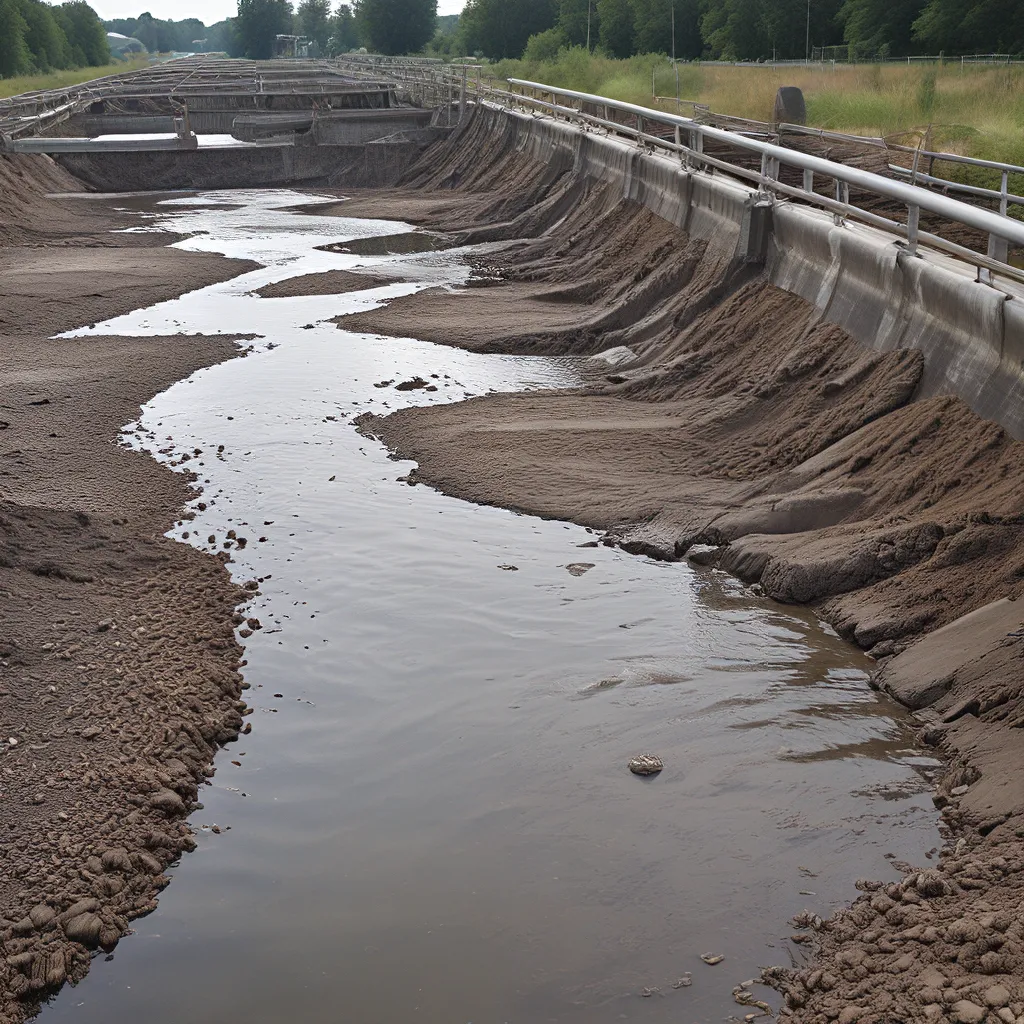
Understanding the Vital Role of Wastewater Sludge Management
As someone who has worked in the wastewater industry for the past decade, I’ve seen firsthand the complexities and importance of sludge management. It’s a topic that often flies under the radar, but the way we handle this byproduct of wastewater treatment has significant implications for the environment, public health, and even the bottom line of utility operators.
Sludge, the semi-solid residue left over after the treatment process, is a multifaceted challenge that requires a nuanced and comprehensive approach. On one hand, it’s a valuable resource, containing nutrients and organic matter that can be reclaimed and repurposed for beneficial uses like fertilizer or renewable energy. But on the other hand, if not managed properly, it can pose serious environmental and public health risks.
That’s why understanding the regulatory landscape surrounding sludge management is so critical. The rules and regulations governing this field are constantly evolving, and staying on top of the latest developments is essential for ensuring compliance and mitigating potential liabilities.
Navigating the Regulatory Maze
The regulatory framework for wastewater sludge management is a complex and multilayered affair, with federal, state, and local agencies all playing a role. At the federal level, the Environmental Protection Agency (EPA) is the primary authority, overseeing the Clean Water Act and establishing national standards for sludge handling and disposal.
But the story doesn’t end there. Individual states have the authority to develop their own regulations, which can be more stringent than the federal guidelines. And at the local level, municipalities and regional wastewater authorities may have their own permitting requirements and best practices that operators must navigate.
Navigating this regulatory maze can be a daunting task, especially for smaller utilities or resource-constrained communities. Compliance with the various rules and regulations is critical, as noncompliance can result in hefty fines, legal action, and even operational shutdowns.
Emerging Trends and Evolving Regulations
The regulatory landscape for wastewater sludge management is constantly evolving, with new rules and standards being introduced on a regular basis. Keeping up with these changes is essential for utility operators and sludge management professionals, as failure to adapt can have serious consequences.
One notable trend is the increasing emphasis on sustainability and environmental stewardship in sludge management practices. The EPA and other regulatory bodies are pushing for more innovative and eco-friendly approaches to sludge disposal, such as land application, composting, and thermal processing.
Emerging technologies are also transforming the sludge management landscape, with advances in dewatering, nutrient recovery, and biosolids processing opening up new opportunities for resource recovery and beneficial reuse.
At the same time, regulatory agencies are tightening the restrictions on contaminants and pollutants in sludge, requiring more stringent testing and monitoring protocols. Dealing with emerging contaminants, such as per- and polyfluoroalkyl substances (PFAS), is becoming an increasingly pressing challenge for utility operators.
Balancing Compliance and Innovation
Navigating the regulatory landscape of wastewater sludge management is a delicate and constantly evolving balancing act. Utility operators and sludge management professionals must stay vigilant and adaptable, constantly monitoring the regulatory environment, implementing best practices, and exploring innovative solutions to ensure compliance and minimize environmental and public health risks.
At the same time, they must also embrace the opportunities presented by emerging technologies and sustainable sludge management approaches. By investing in cutting-edge solutions and staying ahead of the regulatory curve, utility operators can not only ensure compliance but also unlock new revenue streams and environmental benefits.
The key is to adopt a proactive, collaborative, and innovative mindset, working closely with regulators, industry peers, and technology providers to navigate the complexities of sludge management and drive the industry forward.
The Importance of Holistic Sludge Management
Effective sludge management is not just about compliance – it’s about sustainability, resource recovery, and environmental stewardship. By adopting a holistic approach that prioritizes innovation, collaboration, and continuous improvement, utility operators can unlock the full potential of wastewater sludge as a valuable resource.
This could include exploring advanced dewatering technologies to reduce disposal costs, implementing nutrient recovery systems to produce high-quality fertilizers, or investing in thermal processing methods to generate renewable energy.
By taking a proactive and innovative approach to sludge management, utility operators can not only ensure regulatory compliance but also contribute to the larger sustainability goals of their communities and the environment as a whole.
The Path Forward
The future of wastewater sludge management holds both challenges and opportunities. As regulatory frameworks continue to evolve and new technologies emerge, utility operators and sludge management professionals will need to stay vigilant, adaptable, and innovative to navigate the complexities of this vital field.
By embracing a holistic, collaborative, and forward-thinking approach, we can unlock the full potential of wastewater sludge as a sustainable resource and contribute to the overall environmental and economic well-being of our communities.
So, let’s embark on this journey together, exploring the latest trends, implementing best practices, and driving the industry forward – one sludge management solution at a time.
Alpha Wastewater is here to guide you through the complexities of sludge management and help you navigate the regulatory landscape. Contact us today to learn more about our innovative solutions and how we can support your wastewater treatment needs.